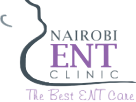Nosebleeds
Why do people get nosebleeds?
It is alarming for you or your child to nosebleed. However, most are not serious despite bleeding from the nose been a common condition. The most common causes are nose picking or irritation of the lining of your nose due to dry air, common cold or sinusitis.
The most crucial thing is how to deal with it. With the appropriate care, most nosebleeds stop on their own.
How do I know if it’s serious?
You should seek your doctor’s help if any other following occur:
- Causes blood to gush out of your nose or makes it hard to breathe
- Causes you to turn very pale, or makes you tired or confused
- Will not stop even after you do the “self-care” steps listed below
- Happens right after surgery on your nose, or if you know you have a growth in your nose
- Happens with other serious symptoms, such as chest pain
- Happens after an injury, such as being hit in the face
- Will not stop, and you take medicines that prevent clotting, such as warfarin, clopidogrel or daily aspirin.
Nosebleed self-care.
- Initially
- Blow your nose
- This may increase the bleeding slightly but do NOT worry
- Position
- Sitting and leaning forward
- Do NOT lie down or tilt your head back
- Pressure
- Apply to the fleshy part of the nose for 10-15 minutes
- Do NOT press on just one side or the bridge of your nose
- Swallowing
- Breathing gently through mouth
- Do NOT swallow any blood,
What if I get repeated nosebleeds?
The are some of the common causes of repeated nose bleeds:
- Breathing dry air all the time
- Using cold or allergy nasal sprays too much
- Frequent colds
- Snorting drugs into your nose, such as cocaine
- Bleeding problems
ENT consultation
Consult your ENT doctor if nose bleeding persists despite self-care tips above or if bleeding is a lot. The ENT will evaluate you, ensure your breathing well. A history and physical examination will ensue and management of the nose bleed depending on the cause, not excluding packing of the nose.
Prevention strategies
Basic prevention methods include:
- Use a humidifier (a machine that makes the air less dry) in your bedroom when you sleep.
- Keep the inside of your nose moist with a nasal saline spray or gel or liquid paraffin.
- Not pick your nose, or at least clip your nails before you do to avoid injury.
References
- Mugwe P, Kamau KJ, Nyambaka OK. Knowledge, Attitude and Practice in First Aid Management of Epistaxis by Accident and Emergency Clinical Staff at Kenyatta National Hospital. East and Central African Journal of Surgery. 2014;19(1):17-21.
- Pope LE, Hobbs CG. Epistaxis: an update on current management. Postgraduate medical journal. 2005 May 1;81(955):309-14.
- Fried PM, Tabaee A. Sataloff’s Comprehensive textbook of Otorhinolaryngology: Head and Neck Surgery: Rhinology, Allergy and Immunology. Vol 2. 2016. Jaypee Brothers.
- Epistaxis in children.
Disclaimer
The content on the Nairobi ENT website is not intended nor recommended as a substitute for medical advice, diagnosis, or treatment. Always seek the advice of your own physician or other qualified health care professional regarding any medical questions or conditions.

